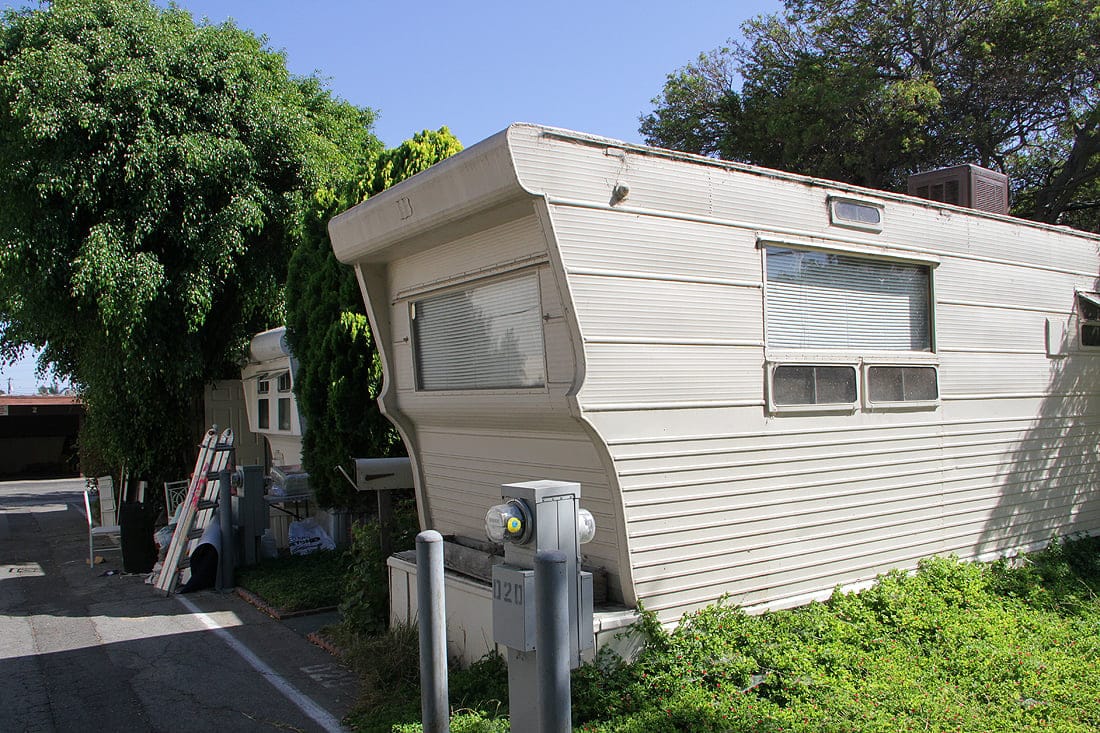
DOWNTOWN L.A. — A new Santa Monica law meant to empower citizens to protect the rights of nature missed its first day in court after a resident of a local trailer park used it in a failed attempt to put a stop to the demolition of 16 trailers.
Brenda Barnes, a former attorney and current resident of Village Trailer Park, applied for an injunction against the removal of trailers from the park using the Sustainability Bill of Rights, a local law passed in March that gives residents the ability to sue to protect local ecosystems.
In her request for a restraining order that went before Judge James Chalfant Tuesday morning, Barnes asserted that the destruction of the trailers released dangerous chemicals into the air and entailed the removal of landscaping that provides a home for small animals.
"There is so much life here in this functioning ecosystem, we experience life and death, the Circle of Life," Barnes wrote in her court filing.
Chalfant denied the temporary restraining order that would have prohibited the owner of the park, Marc Luzzatto, from removing the uninhabited trailers.
Barnes is still deciding if she wants to appeal.
Had she been successful it could have created havoc, said Dean Kubani, head of City Hall's Office of Sustainability and the Environment.
The Sustainability Bill of Rights was intended to give Santa Monicans the standing to sue in cases similar to a one settled by the City Attorney's Office in which groundwater was contaminated by fuel additives leaked from underground storage containers, not necessarily development-related issues.
"They were looking at more, larger threats to the environment," Kubani said, referring to the Task Force on the Environment, a body appointed by the City Council that works on environmental issues.
If the judge had approved it, the Sustainability Bill of Rights would have been used for a purpose for which it was not intended, Kubani said.
Barnes took her motion as an opportunity to promote a broad interpretation of the bill of rights.
Mark Gold, former head of nonprofit Heal the Bay, told the Daily Press in March that the bill of rights was not meant as a tool to stop development, but rather as a way to ensure that normal citizens have the same rights as large corporations.
That desire came to a focus after the 2010 U.S. Supreme Court Decision Citizens United vs. the Federal Elections Commission in which the court ruled in a split vote that political contributions were a form of free speech, clearing the way for corporations to give freely to certain kinds of groups in elections.
"The ability of an individual to sue the city because they don't like a development approval, that's not in there," Gold said in March.
They could sue if the development deprived residents of their right to clean air, he said.
Although Barnes did allege that in her request for the restraining order, Chalfant did not go along with the argument. Whether or not that has implications on Santa Monica's new law is unclear.
ashley@www.smdp.com

